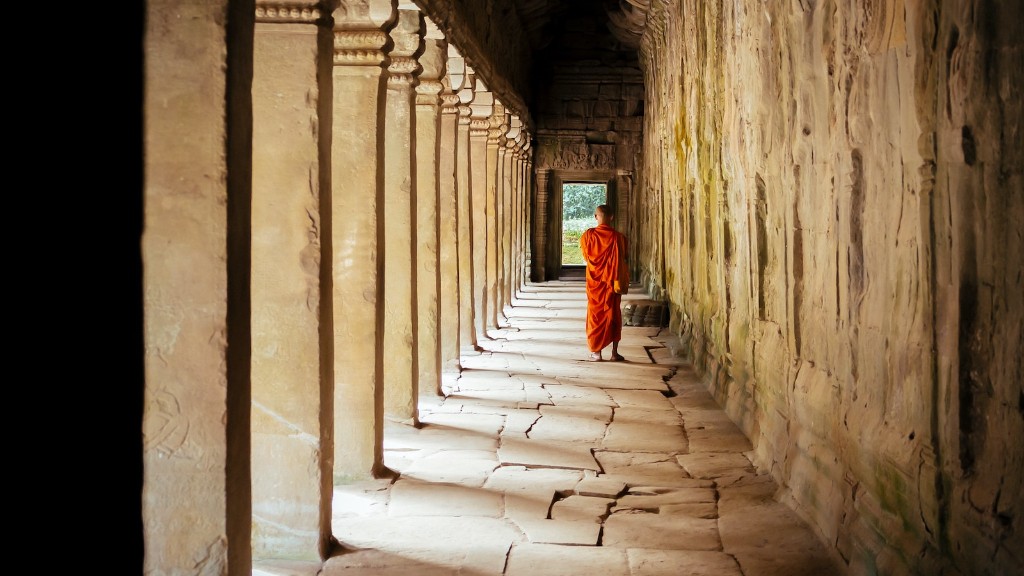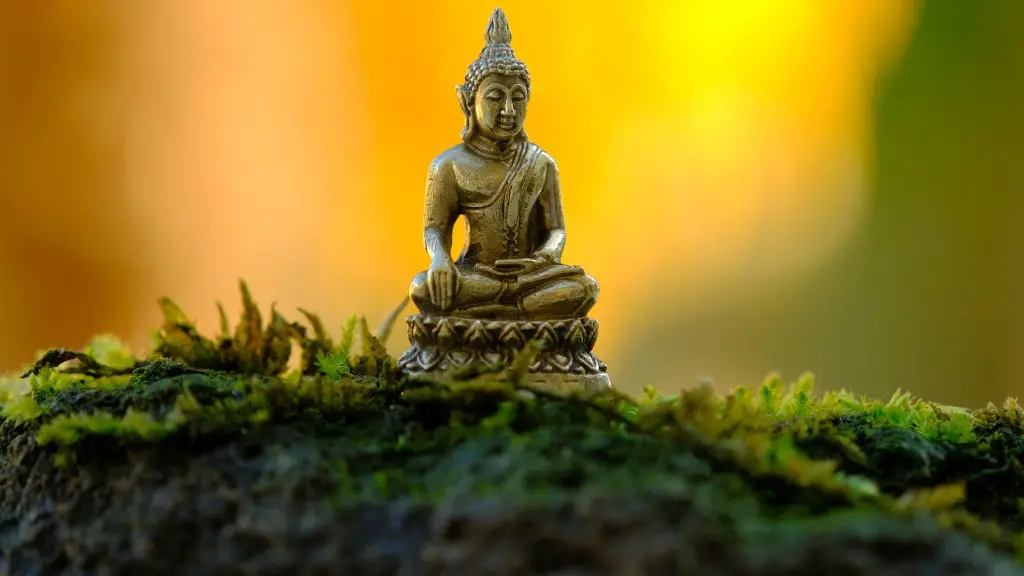Beliefs
Hinduism is one of the oldest religions and it is a highly diverse set of beliefs. Hinduism is rooted in the belief that all living things are part of one cosmic, divine energy that is manifested in interaction with the universe. At its core, Hinduism is the belief that everything in the universe is part of one divine energy. This energy is seen as a divine force that can manifest as gods or spiritual entities. Hindus believe in a cycle of rebirth known as samsara, which is the cycle of life, death, and rebirth. The soul is believed to reincarnate until it achieves moksha, which is the ultimate liberation from the physical world.
Hinduism includes a wide range of beliefs and practices. Many Hindus believe in the existence of multiple gods, such as Vishnu, Shiva, and Kali, who each have a specific purpose and influence in the universe. Hindus also believe in Karma, which is the belief that actions in the present will have consequences in the future. Hindus believe in dharma, which is the theme of ethical and moral behaviour. Finally, many Hindus believe in the concept of karma yoga, which is the idea that one’s actions should be done in service to God.
Texts
Hinduism has many sacred texts, each of which informs and influences Hindu faith and practice. The most important Hindu texts are the Vedas, which are ancient texts from India that are believed to be authored by divine beings. The four original Vedas are the Rigveda, the Sama-Veda, the Yajurveda and the Atharvaveda. There is also an Upanishad, which is an important source of philosophical and ethical ideas. Other important Hindu texts include the Bhagavad Gita, the Ramayana, and the Mahabharata.
In addition to these sacred texts, there is a wide range of other Hindu literature, including Puranas, Agamas, Itihasas, and various scriptural stories. These texts are extremely important to believers, as they provide guidance and are seen as divinely inspired.
Rituals
Hinduism has a complex system of rituals that are seen as essential to spiritual development. These rituals can range from simple daily activities to rituals of great complexity, such as the Maha Kumbh Mela. The most common ritual is puja, which is a devotional ritual in which deities are worshipped. Puja can be performed at home or in temples, and it usually involves an offering of food, incense, and prayer.
Other important rituals include yajna, which is a ritual offering of food and fire, and homa, which is a ritual offering of butter and ghee. Other common rituals include tirtha, pilgrimage to sacred sites, and diksha, initiation into a religious order. These rituals are seen as essential to spiritual growth and understanding of the divine.
Philosophy
Hinduism has its own philosophy, known as the Vedanta. The Vedanta is a belief system that was developed by sages in India over thousands of years and is based on the four Vedas. It includes various philosophical concepts, such as knowledge of Brahman (the ultimate reality) and Moksha or liberation from the cycle of birth and death. It also includes the understanding of Atman (the individual soul) and its relationship with Brahman. Vedanta is seen as the central philosophical system of Hinduism and is heavily influenced by the Upanishads, which form a key part of Hindu literature.
Practices
Hinduism is also defined by its traditions and practices. Hinduism does not have a single set of practices, but rather different practices for different sects and castes. Some practices are common to all Hindus, such as yoga and meditation, which are seen as essential to spiritual growth. Other practices are catered to specific castes and sects, such as specific rituals and worship of specific gods and goddesses.
Hinduism is also defined by its social practices. Hindus generally follow a caste system, which divides people into different groups based on their status and occupation. Hindus also have certain dietary restrictions, such as avoiding meat, as well as certain restrictions on inter-caste marriages. Finally, Hindus follow various spiritual practices, such as chanting of mantras and visiting temples.
Holidays
Hinduism has its own set of holidays and celebrations that are based on the lunar calendar. Some of the most important Hindu holidays include Diwali and Holi, which are celebrated with great enthusiasm throughout India. Other important holidays include Dusshera and Navratri, which are both nine-day festivals that commemorate different deities or figures from Hindu mythology.
Hindus also commemorate other important days, such as the birth of their favourite gods and goddesses, or the anniversary of an important spiritual event, such as the death of a saint. These days are celebrated with great enthusiasm and religious fervor.
Notable Figures
Hinduism has had many influential and revered figures throughout its history. These figures include saints, sages, and spiritual teachers who have contributed to the development and spread of Hinduism. Some of the most notable figures are Rama and Krishna, two central figures in the Hindu religio-mythological tradition. Other figures include Shankara, who founded the Advaita philosophy, and Vivekananda, who spread Hinduism to a western audience.
There are also many modern figures that are influential in Hinduism, such as Sri Sri Ravi Shankar, who has been a major force in spreading the philosophy of Vedanta. Finally, there are many modern figures who practice and promote Hinduism, such as Deepak Chopra, Sadhguru, and Jaya Row.
Interaction with Other Religions
Hinduism has interacted and mingled with many other religions over the centuries. Hinduism has spread throughout the world and has had an influence on many other faiths, such as Buddhism and Jainism. Hindus also have had a long history of interacting with other cultures, such as the Parsis, who settled in India long ago.
Hindus also interact with other religious traditions, such as Zoroastrianism, Judaism, and Christianity. While there are some areas of disagreement, such as the concept of personal salvation and the existence of multiple gods, many Hindus also find common ground with people from other faiths.
Role of Women
The role of women in Hinduism varies from region to region and from sect to sect. In some areas, women are seen as inferior to men, while in other regions women have higher social standing. In some Hindu sects, women are allowed to participate in worship, while in other sects worship is restricted to men.
Generally, women are allowed to take part in some rituals, such as reciting mantras or performing puja. However, some rituals are seen as too sacred to allow women to participate in, such as certain types of Vedic fire sacrifices. Generally, Hindu society values women and sees them as essential to family and religious life.
Conclusion
Hinduism is an ancient and complex religion, with an equally complex system of beliefs and practices. It includes various beliefs, such as theconcepts of karma, samsara, and moksha, as well as complex systems of sacred texts, rituals, philosophies, and traditions. Hindus also have distinctive holidays, revered figures, and practices that vary from region to region. Hinduism has also been influenced by other faiths, such as Buddhism and Jainism, and Hinduism has had a major influence on many other religions. Finally, the role of women in Hinduism can vary from region to region, but women are valued and seen as an essential part of family and religious life.

